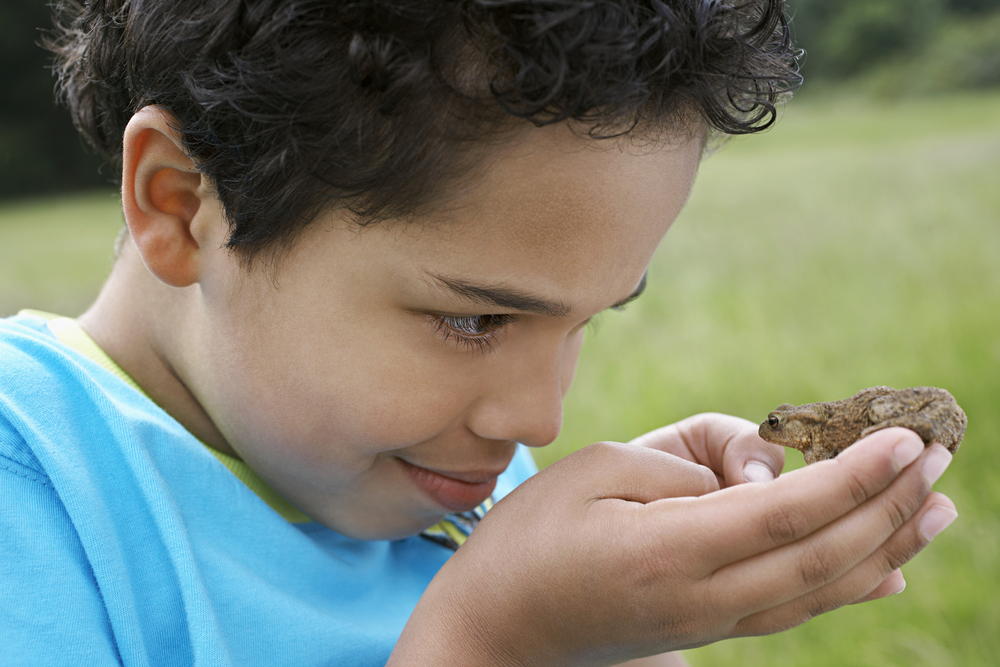Enhancing observation skills Science Worksheets for Ages 6-7
8 filtered results
-
From - To
Unlock your child's scientific potential with our "Enhancing Observation Skills Science Worksheets" tailored for ages 6-7! Designed to boost critical thinking and attention to detail, these engaging worksheets guide young learners through fun, interactive activities. From identifying patterns in nature to simple experiments, each worksheet promotes curiosity and a deeper understanding of the world. Perfect for classroom use or homeschooling, our worksheets make science exciting and accessible. Enhance your child's observational skills today and set the foundation for lifelong learning in science. Download now and watch the discovery happen!


Pollinator Positions Worksheet
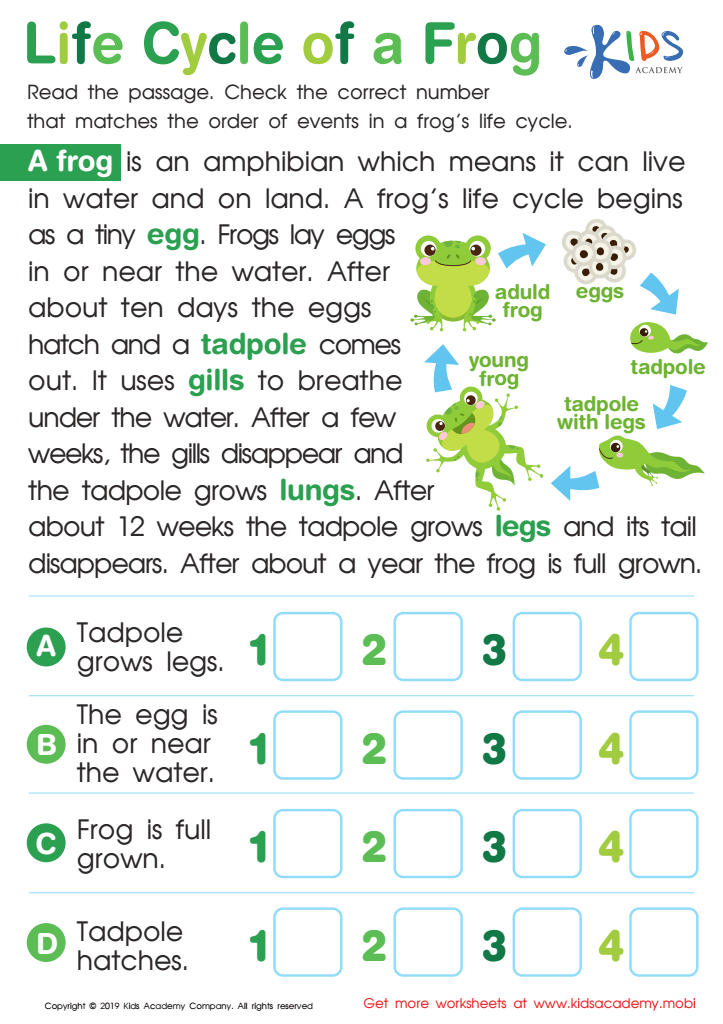

Life Cycle of a Frog Worksheet
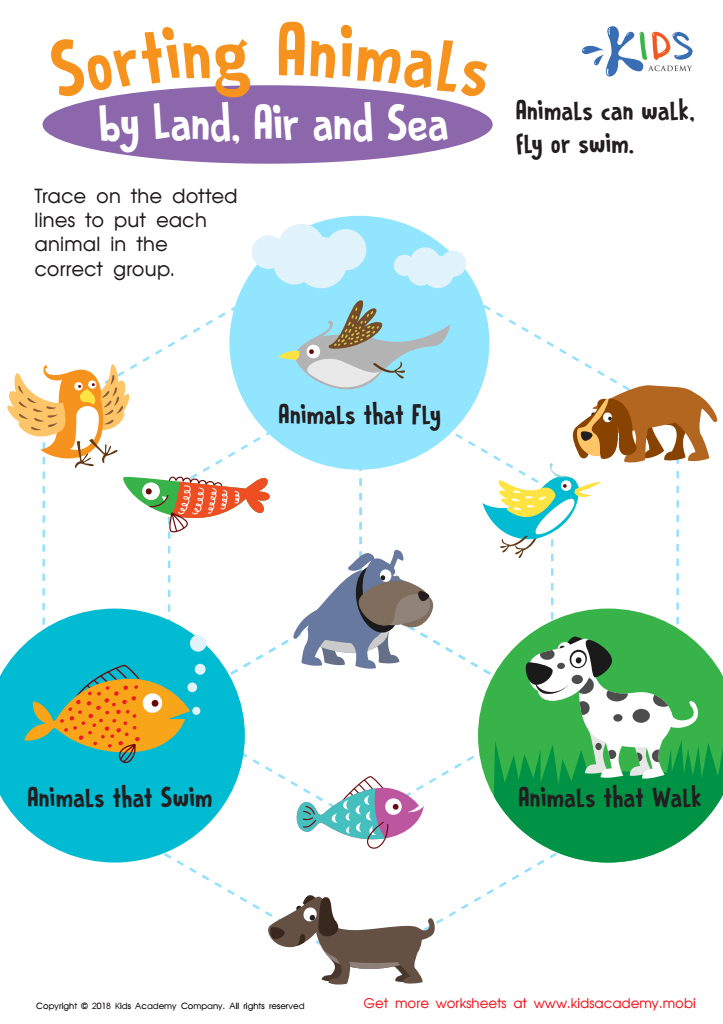

Sorting Animals by Land, Air and Sea Worksheet
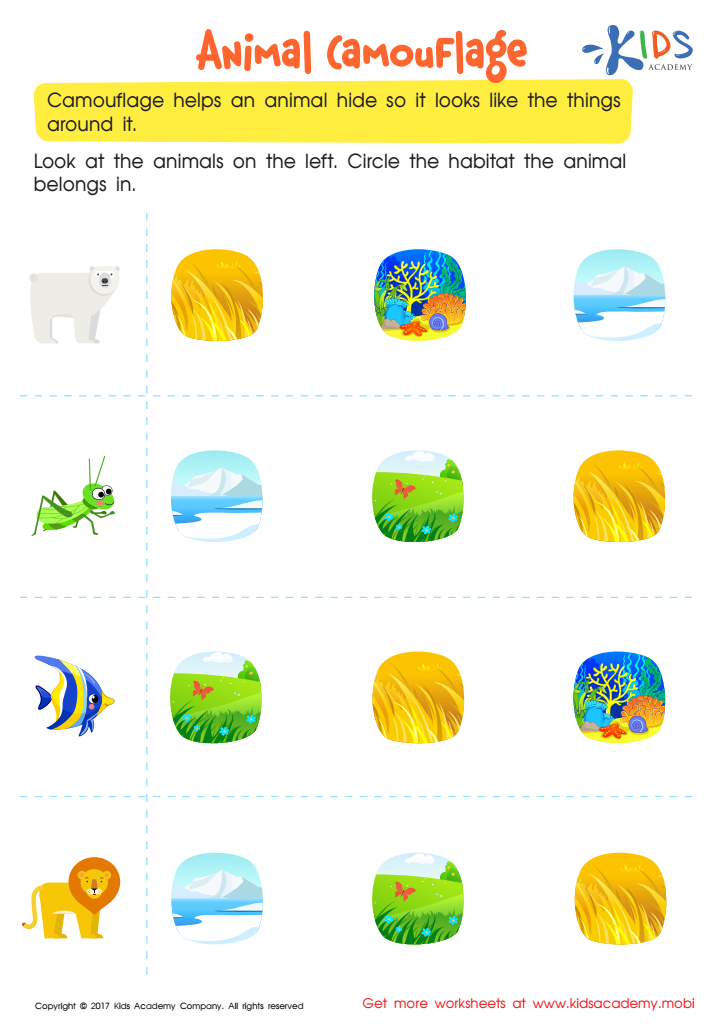

Animal Camouflage Worksheet
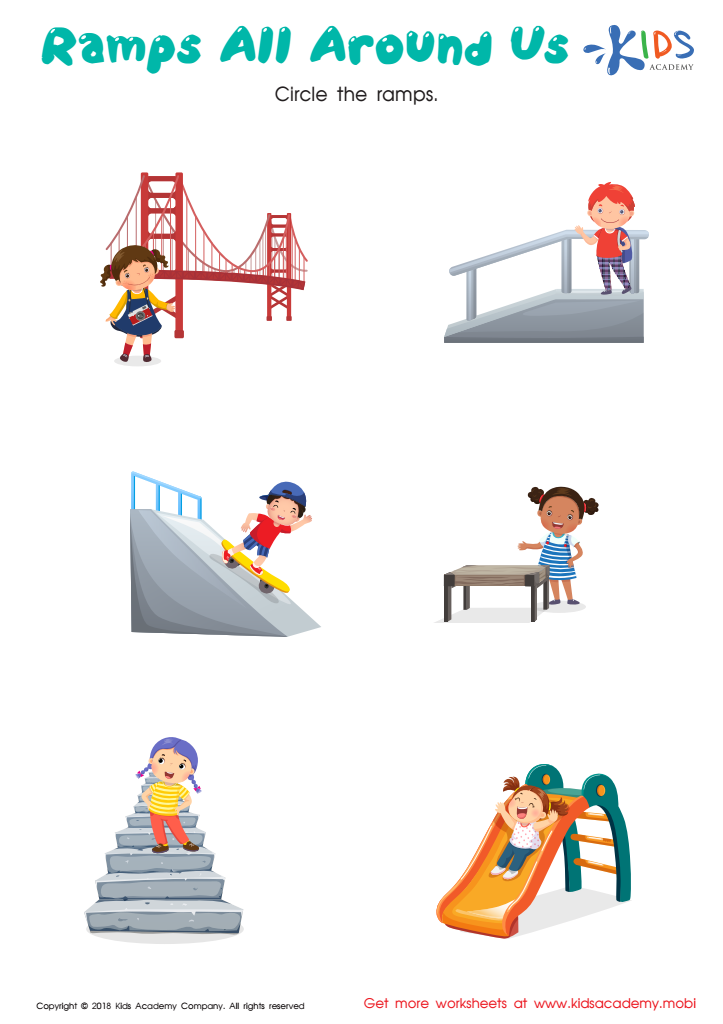

Ramps All Around us Worksheet
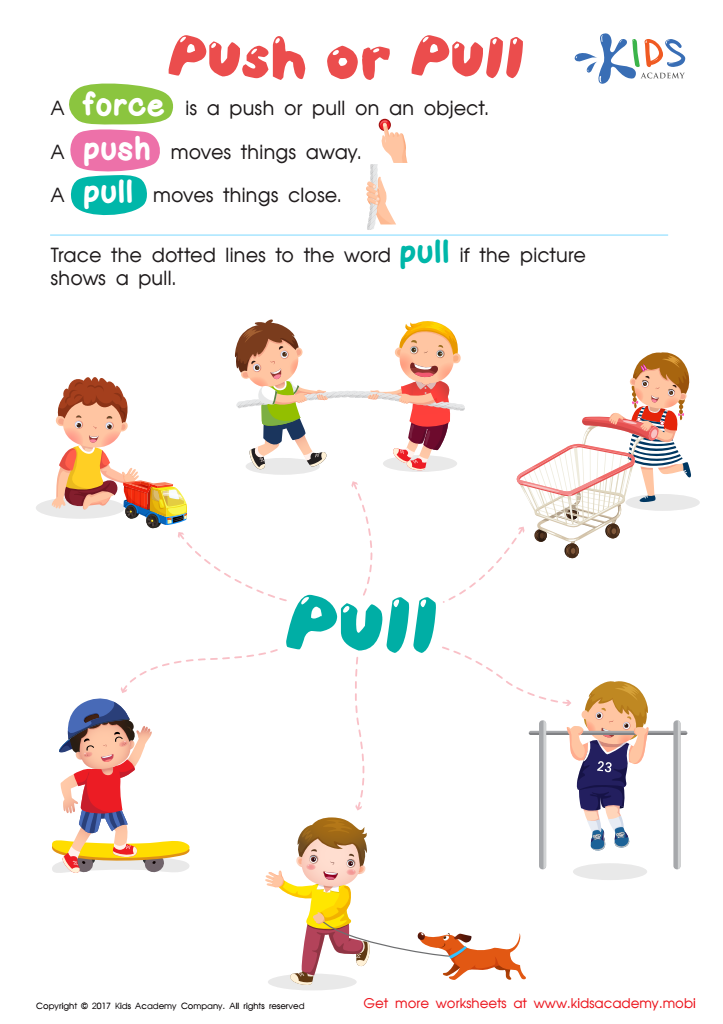

Pull or Push Worksheet
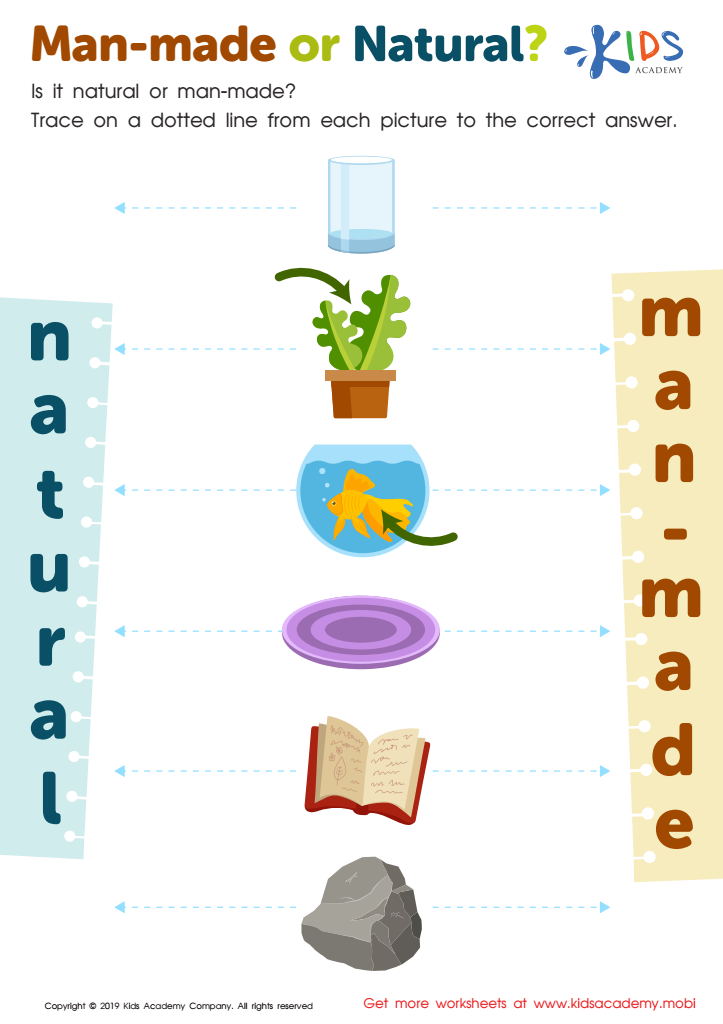

Man-Made or Natural? Worksheet
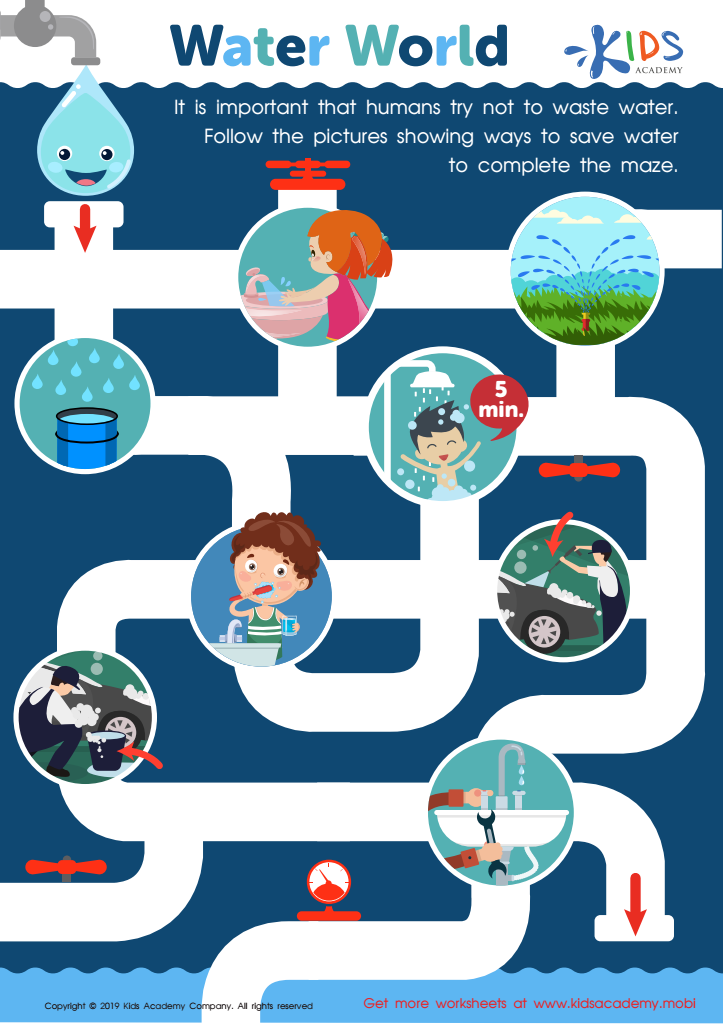

Water World Worksheet
Enhancing observation skills in science for children aged 6-7 is crucial for their cognitive and educational development. At this formative age, children are naturally curious and are beginning to understand the world around them. Cultivating strong observation techniques in science helps to harness this curiosity and channels it into structured learning experiences.
By developing these skills, children learn to notice details, ask questions, and draw conclusions based on their observations. This lays a foundation for critical thinking and problem-solving abilities, which are essential for all areas of learning. Moreover, strong observation skills enhance children’s ability to focus and pay attention, leading to improved academic performance across subjects.
For parents and teachers, focusing on these skills means fostering a better learning environment. Children who observe well are usually more engaged and able to participate in discussions, experiments, and activities, boosting their excitement for learning. These skills also encourage children to become more independent learners, as they learn to seek out information and answers by themselves.
Furthermore, science is a subject that builds upon itself year by year. By strengthening observation skills early on, parents and teachers set the stage for future success in more complex scientific concepts and experiments, making learning more enjoyable and effective in the long-term.
 Assign to My Students
Assign to My Students






